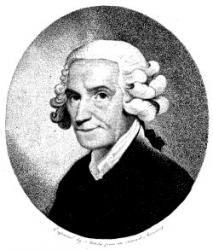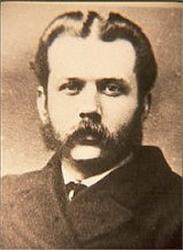Planning worship?
Check out our sister site, ZeteoSearch.org,
for 20+ additional resources related to your search.
- |
User Links
Person Results
James Nares

1715 - 1783 Person Name: J. Nares Composer of "[My soul doth magnify the Lord and my spirit hath rejoiced in God my Saviour]" in Hymns of the Church Born: April 19, 1715, Stanwell, Middlesex, England.
Died: February 10, 1783.
Buried: St. Margaret’s, Westminster, England.
After his family moved to Oxford, Nares became a chorister in the Chapel Royal. He later became deputy organist at St. George’s Chapel, Windsor; organist in York Cathedral (1734); and organist in the Royal Chapel and composer to the king (1756). He received a doctorate of music degree from Cambridge University in 1756. In 1770, the Catch Club awarded him a prize for his glee To All Lovers of Harmony.
Sources:
Frost, p. 683
Nutter, p. 462
http://www.hymntime.com/tch/bio/n/a/r/nares_j.htm
====================
http://en.wikipedia.org/wiki/James_Nares
James Nares
Samuel Webbe

1740 - 1816 Person Name: Webbe Composer of "[My soul doth magnify the Lord]" in Voices of Praise Samuel Webbe (the elder; b. London, England, 1740; d. London, 1816) Webbe's father died soon after Samuel was born without providing financial security for the family. Thus Webbe received little education and was apprenticed to a cabinetmaker at the age of eleven. However, he was determined to study and taught himself Latin, Greek, Hebrew, French, German, and Italian while working on his apprenticeship. He also worked as a music copyist and received musical training from Carl Barbant, organist at the Bavarian Embassy. Restricted at this time in England, Roman Catholic worship was freely permitted in the foreign embassies. Because Webbe was Roman Catholic, he became organist at the Portuguese Chapel and later at the Sardinian and Spanish chapels in their respective embassies. He wrote much music for Roman Catholic services and composed hymn tunes, motets, and madrigals. Webbe is considered an outstanding composer of glees and catches, as is evident in his nine published collections of these smaller choral works. He also published A Collection of Sacred Music (c. 1790), A Collection of Masses for Small Choirs (1792), and, with his son Samuel (the younger), Antiphons in Six Books of Anthems (1818).
Bert Polman
Samuel Webbe
John Goss

1800 - 1880 Person Name: J. Goss , 1800 - 1880 Composer of "[My soul doth magnify the Lord] (Goss)" in The Hymnary John Goss (b. Fareham, Hampshire, England, 1800; d. London, England, 1880). As a boy Goss was a chorister at the Chapel Royal and later sang in the opera chorus of the Covent Garden Theater. He was a professor of music at the Royal Academy of Music (1827-1874) and organist of St. Paul Cathedral, London (1838-1872); in both positions he exerted significant influence on the reform of British cathedral music. Goss published Parochial Psalmody (1826) and Chants, Ancient and Modern (1841); he edited William Mercer's Church Psalter and Hymn Book (1854). With James Turle he published a two-volume collection of anthems and Anglican service music (1854).
Bert Polman
John Goss
John Robinson
1682 - 1762 Person Name: John Robinson, 1682-1762 Composer of "[My soul doth magnify the Lord]" in Pilgrim Hymnal
John Robinson
Henry Thomas Smart

1813 - 1879 Person Name: Henry Smart Composer of "[My soul doth magnify the Lord]" in The Sanctuary Hymnal, published by Order of the General Conference of the United Brethren in Christ Henry Smart (b. Marylebone, London, England, 1813; d. Hampstead, London, 1879), a capable composer of church music who wrote some very fine hymn tunes (REGENT SQUARE, 354, is the best-known).
Smart gave up a career in the legal profession for one in music. Although largely self taught, he became proficient in organ playing and composition, and he was a music teacher and critic. Organist in a number of London churches, including St. Luke's, Old Street (1844-1864), and St. Pancras (1864-1869), Smart was famous for his extemporizations and for his accompaniment of congregational singing. He became completely blind at the age of fifty-two, but his remarkable memory enabled him to continue playing the organ. Fascinated by organs as a youth, Smart designed organs for important places such as St. Andrew Hall in Glasgow and the Town Hall in Leeds. He composed an opera, oratorios, part-songs, some instrumental music, and many hymn tunes, as well as a large number of works for organ and choir. He edited the Choralebook (1858), the English Presbyterian Psalms and Hymns for Divine Worship (1867), and the Scottish Presbyterian Hymnal (1875). Some of his hymn tunes were first published in Hymns Ancient and Modern (1861).
Bert Polman
Henry Thomas Smart
Anonymous
Composer of "[My soul doth magnify the Lord]" in The Hymnal of the Protestant Episcopal Church in the United States of America 1940 In some hymnals, the editors noted that a hymn's author is unknown to them, and so this artificial "person" entry is used to reflect that fact. Obviously, the hymns attributed to "Author Unknown" "Unknown" or "Anonymous" could have been written by many people over a span of many centuries.
Anonymous
Bruce E. Ford
1947 - 2025 Person Name: Bruce E. Ford, b. 1947 Adapter (antiphon) of "[My soul doth magnify the Lord] " in The Hymnal 1982
Bruce E. Ford
Thomas Attwood Walmisley
1814 - 1856 Person Name: T. A. Walmisley Composer of "[My soul doth magnify the Lord]" in The Methodist Hymn-Book with Tunes
Thomas Attwood Walmisley
Philip Armes

1836 - 1908 Person Name: P. Armes Composer of "[My soul doth magnify the Lord, and my spirit hath rejoiced in God my Saviour]" in Church Hymns and Tunes Philip Armes, born in Norwich,England, Aug. 15, 1836. Organist; chorister in Norwich Cathedral in 1846-48, and in Rochester Cathedral 1848-51; articled pupil of Dr. John Larkin Hopkins at Rochester, 1850-55; was organist of Trinity Church, Milton, Gravesend in 1855-57, at St. Andrew's, Wells Street, London, in 1857-61, of Chichester Cathedral in 1861-62, and of Durham Cathedral since 1862. Mus. Bac., Oxford 1858; Mus. Doc., Oxford, 1865. degrees also from University of Durham, 1863-1864. Works: Hezekiah, oratorio, performed at Worcester Festival, 1878; St. John the Evangelist, do., York Festival 1881; Communion Services in A; do. in B-flat; Te Deum; Morning and Evening Service in G; Anthems; Chants; Hymns, etc.
Cyclopedia of Music and Musicians by John Denison Camplin, Jr. and William Foster Apthorp (Charles Scribner’s Sons, 1888)
Philip Armes
Walter Bond Gilbert

1829 - 1910 Person Name: Dr. W. B. Gilbert Composer of "[My soul doth magnify the Lord]" in The Hymnal, Revised and Enlarged, as adopted by the General Convention of the Protestant Episcopal Church in the United States of America in the year of our Lord 1892 Walter Bond Gilbert DMus United Kingdom 1829-1910. Born at Exeter, Devon, England, he studied music under Alfred Angel, Samuel Wesley and Henry Bishop. He attended New College, Oxford and the University of Toronto, Canada. He was organist in Devon at Topsham in 1847, Bideford in 1849, Kent at Tonbridge in 1854, Old Colliegiate Church, Maidstone in 1859, Lee in 1866, Boston, Lincolnshirein 1868, and Trinity Chapel in New York City in 1869-1897. He taught music at Tonbridge School, helped found the College of Organists, edited the America Episcopal Hymnal, and wrote a number of monographs, including “Antiquities of Maidstone”. He continued to write church music, producing services, oratorios (including “The Restoration of Israel and St. John, 1857), organ works, and anthems. He died at Headington, Oxford, England.
John Perry
Walter Bond Gilbert


 My Starred Hymns
My Starred Hymns

